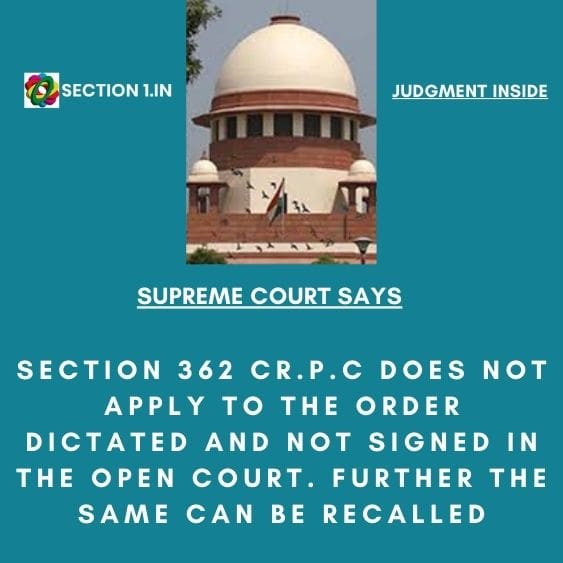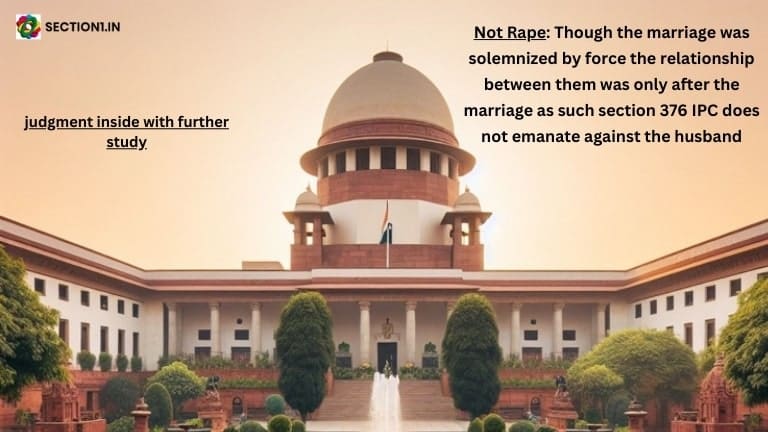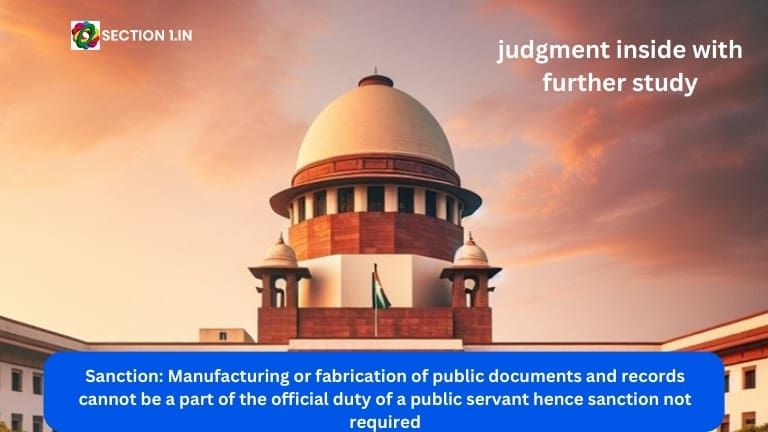RECALLING ACQUITTAL JUDGMENT
Aggrieved, the petitioners preferred Criminal Appeal No.2012 of 2006 before the High Court of Gujarat and during the pendency of the appeal, the petitioners had been enlarged on bail vide order dated 22.11.2006. The appeal was finally heard on 11.12.2013 and the court took a view that sanction of the State Government under Section 197 of the Code of Criminal Procedure, 1973 (hereinafter referred to as “Cr.P.C.”) was necessarily required, and in view thereof, the order was dictated in open court allowing the appeal on technical issue. However, the order dictated in open court and acquitting the petitioners vide order dated 11.12.2013 was recalled by the court suo moto vide order dated 27.12.2013 and directed the appeal to be reheard. The order had been recalled on the ground that the court wanted to examine the issue further as to whether in the facts and circumstances of the case where the accused had been police constables, the offence could not be attributed to have been committed under the commission of their duty where sanction under Section 197 Cr.P.C. would be attracted.
xxx
SECTION 362 Cr.P.C DOES NOT APPLY TO THE ORDER DICTATED AND NOT SIGNED IN THE OPEN COURT AND THE SAME CAN BE RECALLED
4. We do not find any forcible submission advanced on behalf of the petitioners that once the order had been dictated in open court, the order to review or recall is not permissible in view of the provisions of Section 362 Cr.P.C. for the simple reason that Section 362 Cr.P.C. puts an embargo to call, recall or review any judgment or order passed in criminal case once it has been pronounced and signed. In the instant case, admittedly, the order was dictated in the court, but had not been signed.
Mohan Singh v. King-Emperor 1943 ILR (Pat) 28
Amodini Dasee v. Darsan Ghose, 1911 ILR (Cal) 828
Emperor v. Pragmadho Singh, 1932 ILR (All.) 132.
State of Bombay v. Geoffrey Manners & Co., AIR 1951 Bom. 49.
Sangam Lal v. Rent Control and Eviction Officer, Allahabad & Ors – AIR 1966 All. 221.
Surendra Singh & Ors. v. State of U.P., AIR 1954 SC 194
After considering the aforesaid decisions, the Hon’ble Supreme Court has held as follows:
Thus, from the above, it is evident that a Judge’s responsibility is very heavy, particularly, in a case where a man’s life and liberty hang upon his decision nothing can be left to chance or doubt or conjecture. Therefore, one cannot assume, that the Judge would not have changed his mind before the judgment become final.
10. In Iqbal Ismail Sodawala v. The State of Maharashtra & Ors., AIR 1974 SC 1880, the judgment in Surendra Singh (supra) referred to hereinabove was considered in this case. In that case, criminal appeal was heard by the Division Bench of the High Court, the judgment was signed by both of them but it was delivered in court by one of them after the death of the other. It was held that there was no valid judgment and the case should be re-heard. This Court took the view that the judgment is the final decision of the court intimated to the parties and the world at large.
11. In view of the above, we are of the considered opinion that no exception can be taken to the procedure adopted by the High Court in the instant case.
PARTY: Kushalbhai Ratanbhai Rohit v. State of Gujarat, Special Leave Petition (Crl.) No: 453 of 2014 decided on 06.05.2014.
https://main.sci.gov.in/jonew/judis/41523.pdf
Kushalbhai Ratanbhai Rohit vs. The State of Gujarat – judgment not signed is not a judgment.
Further study: https://demonew.section1.in/section-362-cr-p-c-section-362-cr-p-c-would-not-prohibit-the-court-to-modify-the-bail-order/






